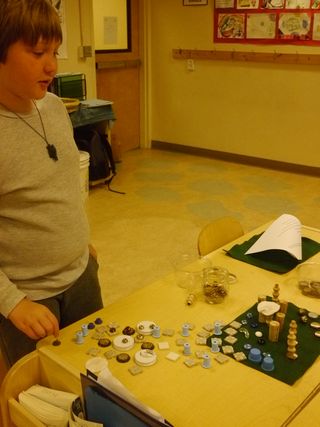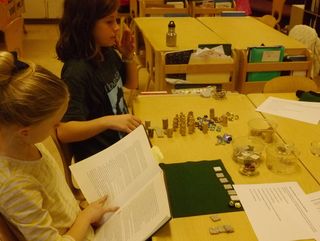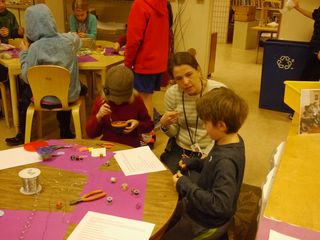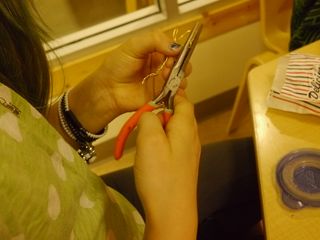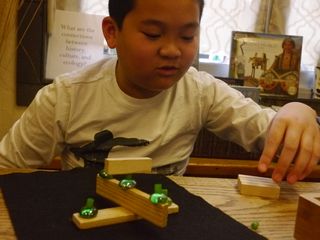A crucial thing to know
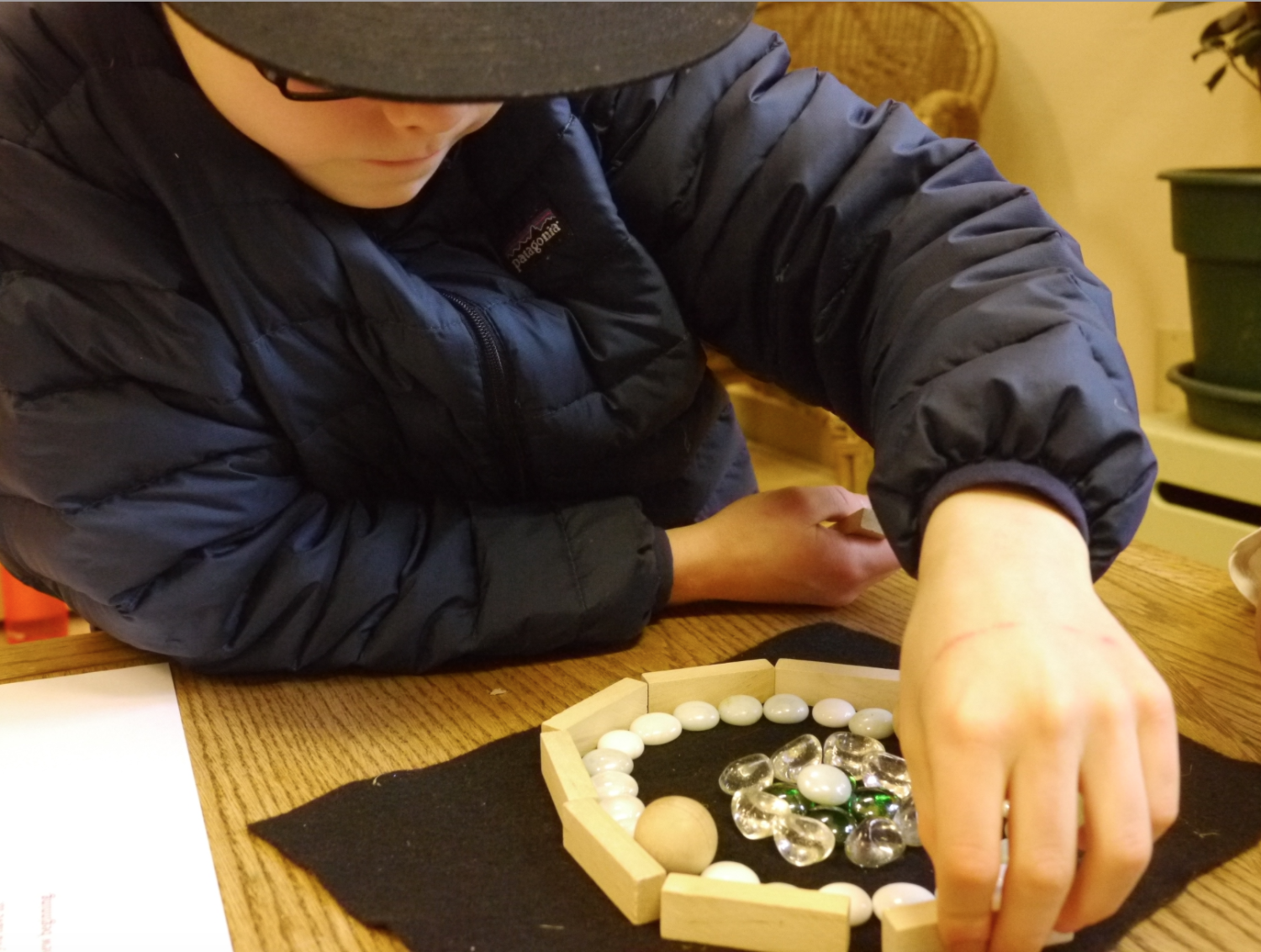
We’re looking forward to hosting Opal School Visitation Days, when 80 teachers and administrators from seven states, the District of Columbia, and two Canadian provinces will gather in Portland to wonder with us: How might play, inquiry, and thinking in questions sustain communities of learners, ages 3-11, and the adults who work with them? This is the ball toss of our work together at Opal School, zooming into specific (oftentimes private, interpersonal) stories and relating them to zoomed out (public and broad) encounters.
Opal 4 (ages 8-11) has been responding to a class reading of Barry Lopez’s Crow and Weasel. Inspired by our recent work with Vicki Vinton, Hannah asked each student to do some writing about a big idea represented in the book. The group brainstormed a list of those themes and worked with materials to crack those themes open.
To prepare for writing today, Hannah invited the children’s ideas about one of the passages from the book that strongly connects to the cultural and historical inquiry the class will engage in throughout the year:
That strangeness, the intriguing life of another people, it is a crucial thing, I think, to know.
Here are some snippets from the group discussion that ensued:
ABS – The strangeness – it’s like the culture or the difference – knowing the inside story and the outside story of another person or culture or religion.
BC – It reminds me of the quote “if you’re not confused you’re not thinking.” You have to know all that strangeness and difference of another people – it’s crucial to know and to wonder about.
Hannah – Are you saying that if you’re not wondering, you’re not thinking?
NL – I think they’re saying that if you notice the strangeness of another people -and then you wonder more – then you’re thinking more.
Hannah – So what?
NL – So you can learn more about another people and be aware.
SS – I think it connects to when they were with the Inuits.* They had different inside and outside stories that were much different from each other’s.
PK – When they met the Inuits, they didn’t know that people were that far north. When they met them, they just called them the Flatnosed people. [PK then provides details from the encounter] Then they met each other and they found out about each other.
HC – They’re first impression kept them from exploring and there were misunderstandings. Can somebody bring this outside of the story to your personal lives or our world?
ABM – When we first met Angelina, she was different. Her outside story was nice, but then we found the inside story and built strong friendships.
I found myself thinking about how Badger’s words to Crow and Weasel strongly reflect a disposition too often missing in our world today – how taking perspective across boundaries is crucial to overcoming personal and public conflicts. Today’s conversation offered a window into the exciting opportunities that lie ahead for this group to further explore this wisdom as they look at cultural contact and conflict past and present, large and small.
I’m curious to hear: What does this window wake up for you? How are you and your students playfully inquiring into the books you read and the worlds they reflect?
* I recognize that Inuit is a complicated term. The class uses it here because it is the term used in the text.

